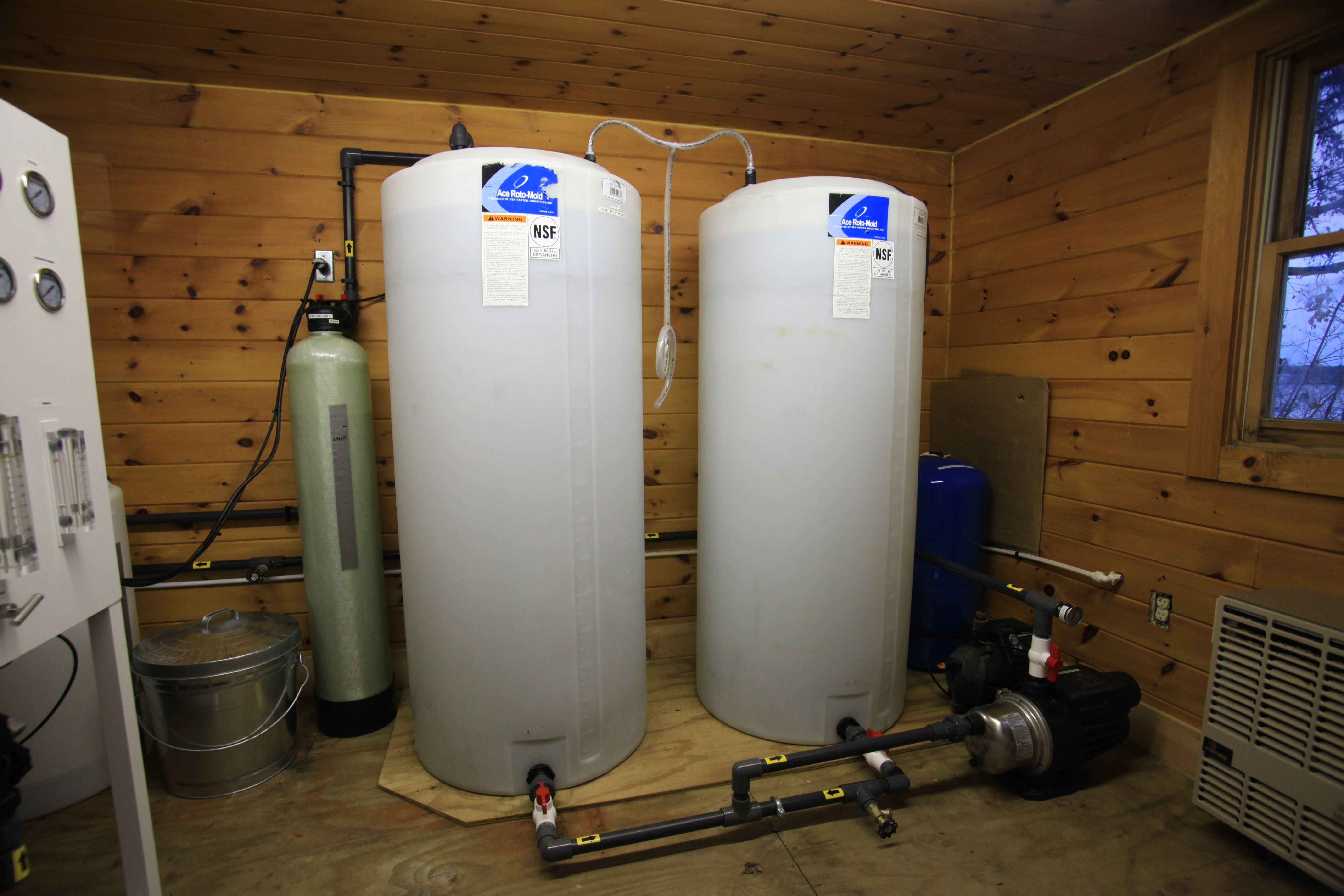Water Softener Installers Of Maine
Serving the needs of the people in southern and central Maine since 1989
Serving the needs of the people in southern and central Maine since 1989
Water Softeners remove hardness, iron and/or manganese. These are some of the most common contaminants in water in Maine.
Soft water extends the life of your boiler, washing machine, dishwasher, and any appliances that use water in your home. You’ll have spot free dishes, and be able to use less soap and laundry detergent too!

Hardness is caused by minerals, primarily calcium and magnesium, which are picked up by water passing through underground mineral deposits. Hard water is not considered contaminated, but it does retard the cleaning action of soap and forms a scale on cooking utensils, hot water pipes and heaters. This build-up may eventually reduce pipe capacity and water pressure. Hardness is the total concentration of calcium and magnesium in water. Water with under 75 milligrams per liter of calcium carbonate is soft; water with over 200 milligrams per liter is hard.
Iron is widely dispersed in Maine soils and groundwaters (and therefore in well water), and can also be present in drinking water due to cast iron main corrosion.While iron is critical to human health, its presence in drinking water is typically unwelcome, as it adds a bloody taste and rusty color.
Manganese is one of a small group of chemicals (including iron, copper and a few others) that reaches an undesirable level due to taste, odor, or color before it becomes a health hazard. For this reason, health-based guidelines for these chemicals are usually not available. Instead, secondary or “aesthetic” MCLs have been promulgated by the U.S. EPA. These “SMCLs” are not formally adopted by the state and thus are not legally enforceable. However, exceeding the SMCL usually means that the water is undesirable for human consumption. The SMCL for manganese is 0.05 mg/l.